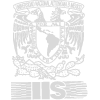
Conceptos
y fenómenos
fundamentales
de nuestro
tiempo
| AUTOORGANIZACIÓN (SISTEMAS COMPLEJOS) | |
| Definición | Bibliografía |
Existen 16 trabajos electrónicos relacionados al concepto 'AUTOORGANIZACIÓN (SISTEMAS COMPLEJOS)'.
(Página 1 de 1)
| Título | Autor | Consultar |
|---|---|---|
| Ashby, W. Ross. “Principles of the self-organizing system” [en línea]. En E:CO No. 1-2, Vol. 6 (2004): 102-126. Tomado del sitio electrónico de la Comunidad de Pensamiento Complejo. | Ashby, W. Ross. | Ver enlace externo |
| Ay, Nihat; Ralf Der; y Mikhail Prokopenko. “Information Driven Self-Organization: The Dynamical Systems Approach to Autonomous Robot Behavior” [en línea]. En Santa Fe Institute (3 de septiembre, 2010). | Ay, Nihat; Ralf Der; y Mikhail Prokopenko. | Ver enlace externo |
| Barfoot, Timothy D., y Gabriele M. T. D’Eleuterio. “Stochastic self-organization” [en línea]. En Complex Systems No. 16 (2005): 95-121. | Barfoot, Timothy D., y Gabriele M. T. D’Eleuterio. | Ver enlace externo |
| Bonabeau, Eric, et al. “Dominance Orders in Animal Societies: The Self-Organization Hypothesis Revisited” [en línea]. En Santa Fe Institute (1999). | Bonabeau, Eric, et al. | Ver enlace externo |
| Bonabeau, Eric, et al. “Self-Organization in Social Insects” [en línea]. En Santa Fe Institute (1997). | Bonabeau, Eric, et al. | Ver enlace externo |
| Fontana, Walter. “Algorithmic Chemistry: A Model for Functional Self-Organization” [en línea]. En Santa Fe Institute (9 de junio, 1990). | Fontana, Walter. | Ver enlace externo |
| Gershenson, Carlos, y Francis Heylighen. “The Meaning of Self-organization in Computing” [en línea]. En Advances in Artificial Life (2003): 606-614. Tomado de la 7th European Conference, ECAL, en Dortmund, Alemania. | Gershenson, Carlos, y Francis Heylighen. | Ver enlace externo |
| Gershenson, Carlos, y Francis Heylighen. “When Can we Call a System Self-organizing?” [en línea]. En Lecture Notes in Computer Science Vol. 2801 (2003): 606-614. Tomado del sitio electrónico Cornell University Library. | Gershenson, Carlos, y Francis Heylighen. | Ver enlace externo |
| Helbing, Dirk; Wenjian Yu; y Heiko Rauhut. “Self-Organization and Emergence in Social Systems: Modeling the Coevolution of Social Environments and Cooperative Behavior” [en línea]. En Santa Fe Institute (24 de julio, 2009). | Helbing, Dirk; Wenjian Yu; y Heiko Rauhut. | Ver enlace externo |
| Johnson, Norman, et al. Symbiotic Intelligence: “Self-Organizing Knowledge on Distributed Networks Driven By Human Interaction” [en línea]. En Santa Fe Institute (1998). | Johnson, Norman, et al. | Ver enlace externo |
| Martius, Georg; Ralf Der; y Nihat Ay. “Information Driven Self-Organization of Complex Robotic Behaviors” [en línea]. En Santa Fe Institute (30 de enero, 2013). | Martius, Georg; Ralf Der; y Nihat Ay. | Ver enlace externo |
| McCaskill, John, et al. “Evolutionary Self-Organization in Complex Fluids” [en línea]. En Santa Fe Institute (2006). | McCaskill, John, et al. | Ver enlace externo |
| Paczuski, Maya, y Per Bak. “Self-organization of complex systems” [en línea]. En Proceedings of the 12thChris Engelbrecht Summer School (5 de junio, 1999). Tomado del sitio electrónico Cornell University Library. | Paczuski, Maya, y Per Bak. | Ver enlace externo |
| Pichler, Elgar E.; James D. Keelert; y John Ross. “Comparison of Self-Organization and Optimization in Evolution and Neural Network Models” [en línea]. En Complex Systems No. 4 (1990): 75-106. | Pichler, Elgar E.; James D. Keelert; y John Ross. | Ver enlace externo |
| Smith, Thomas S., y Gregory Stevens. “Emergence, Self-Organization, and Social Interaction: Arousal-Dependent Structure in Social Systems” [en línea]. En Santa Fe Institute (1994). | Smith, Thomas S., y Gregory Stevens. | Ver enlace externo |
| Valverde, Sergi, y Ricard V. Solé. “Self-Organization and Hierarchy in Open Source Social Networks” [en línea]. En Santa Fe Institute (2006). | Valverde, Sergi, y Ricard V. Solé. | Ver enlace externo |
Págs: 1

|
Hecho en México, Instituto de Investigaciones Sociales-UNAM, todos los derechos reservados 2016.
|